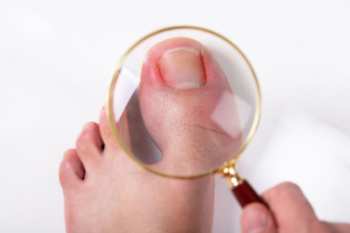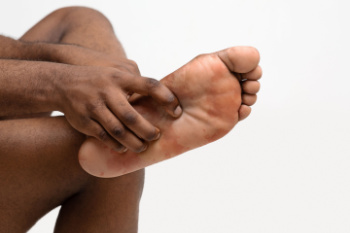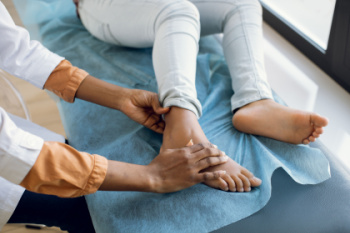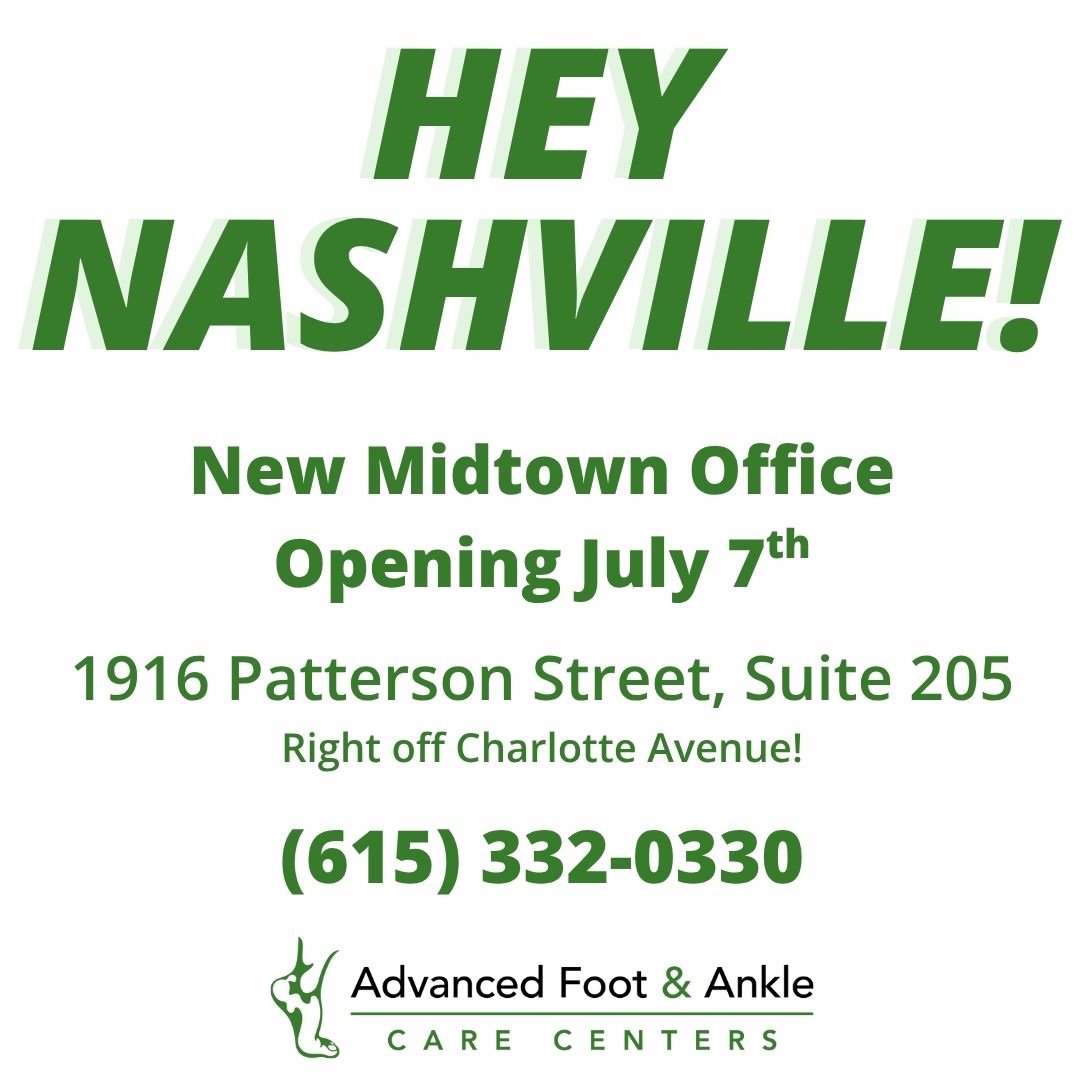
Ingrown toenails are a common problem, especially among teenagers and young adults. They can make it painful to walk, wear shoes, or go about daily routines. Mild cases can often be managed with gentle, non-surgical care such as taping the skin away from the nail, placing soft material under the edge of the nail, or using special braces that guide the nail to grow properly. These methods may bring relief when used early and with proper technique. In more serious cases, where the nail continues to grow into the skin or becomes infected, minor surgery may be needed. A widely used and reliable approach involves treating the side of the nail root so the problem does not return. If you have a painful, swollen toenail that does not improve, it is suggested that you schedule an appointment with a podiatrist for a diagnosis and appropriate treatment.
Ingrown toenails can become painful if they are not treated properly. For more information about ingrown toenails, contact one of our podiatrists of Advanced Foot & Ankle Care Centers. Our doctors can provide the care you need to keep you pain-free and on your feet.
Ingrown Toenails
Ingrown toenails occur when a toenail grows sideways into the bed of the nail, causing pain, swelling, and possibly infection.
Causes
- Bacterial infections
- Improper nail cutting such as cutting it too short or not straight across
- Trauma to the toe, such as stubbing, which causes the nail to grow back irregularly
- Ill-fitting shoes that bunch the toes too close together
- Genetic predisposition
Prevention
Because ingrown toenails are not something found outside of shoe-wearing cultures, going barefoot as often as possible will decrease the likeliness of developing ingrown toenails. Wearing proper fitting shoes and using proper cutting techniques will also help decrease your risk of developing ingrown toenails.
Treatment
Ingrown toenails are a very treatable foot condition. In minor cases, soaking the affected area in salt or antibacterial soaps will not only help with the ingrown nail itself, but also help prevent any infections from occurring. In more severe cases, surgery is an option. In either case, speaking to your podiatrist about this condition will help you get a better understanding of specific treatment options that are right for you.
If you have any questions please feel free to contact our offices located in Nashville, Smyrna, Spring Hill, Columbia, Dickson, Fairview, Hohenwald, TN and the Middle Tennessee community . We offer the newest diagnostic and treatment technologies for all your foot and ankle needs.

Some people worry that correcting a hammertoe might interfere with their balance, but this is not typically the case. Hammertoe surgery is designed to straighten a bent toe that no longer functions properly. Since balance relies more on the heel, the ball of the foot, and strong ankle support, realigning a toe does not usually disrupt stability. In fact, removing the pain and pressure caused by a deformed toe can improve how the foot makes contact with the ground. After healing, most people notice improved comfort in shoes and a more natural walking pattern. Targeted exercises may also help restore strength and coordination following surgery. If you are concerned about changes in your gait or posture after toe correction, it is suggested that you consult a podiatrist for guidance tailored to your needs.
Foot surgery is sometimes necessary to treat a foot ailment. To learn more, contact one of our podiatrists of Advanced Foot & Ankle Care Centers. Our doctors will assist you with all of your foot and ankle needs.
When Is Surgery Necessary?
Foot and ankle surgery is generally reserved for cases in which less invasive, conservative procedures have failed to alleviate the problem. Some of the cases in which surgery may be necessary include:
- Removing foot deformities like bunions and bone spurs
- Severe arthritis that has caused bone issues
- Cosmetic reconstruction
What Types of Surgery Are There?
The type of surgery you receive will depend on the nature of the problem you have. Some of the possible surgeries include:
- Bunionectomy for painful bunions
- Surgical fusion for realignment of bones
- Neuropathy decompression surgery to treat nerve damage
Benefits of Surgery
Although surgery is usually a last resort, it can provide more complete pain relief compared to non-surgical methods and may allow you to finally resume full activity.
Surgical techniques have also become increasingly sophisticated. Techniques like endoscopic surgery allow for smaller incisions and faster recovery times.
If you have any questions please feel free to contact our offices located in Nashville, Smyrna, Spring Hill, Columbia, Dickson, Fairview, Hohenwald, TN and the Middle Tennessee community . We offer the newest diagnostic and treatment technologies for all your foot and ankle needs.

Plantar fasciitis occurs when the thick ligament on the bottom of the foot, called the plantar fascia, becomes irritated from overuse or strain. This tissue supports the arch and helps absorb impact during walking or running. When the ligament becomes inflamed, it can cause sharp pain near the heel, especially first thing in the morning or after standing for a long time. The discomfort from plantar fasciitis may return after exercise or long periods of walking. Risk factors include being between the ages of 40 and 60, carrying excess body weight, or participating in activities that put stress on the heel, such as long-distance running or dance. The condition may affect one or both feet, depending on how much strain is placed on them. A podiatrist can diagnose plantar fasciitis through a physical exam and imaging to rule out other foot problems. If you are experiencing pain along the bottom of your feet, it is suggested that you schedule an appointment with a podiatrist who can accurately diagnose and treat plantar fasciitis.
Plantar fasciitis can be very painful and inconvenient. If you are experiencing heel pain or symptoms of plantar fasciitis, contact one of our podiatrists from Advanced Foot & Ankle Care Centers. Our doctors can provide the care you need to keep you pain-free and on your feet.
What Is Plantar Fasciitis?
Plantar fasciitis is the inflammation of the thick band of tissue that runs along the bottom of your foot, known as the plantar fascia, and causes mild to severe heel pain.
What Causes Plantar Fasciitis?
- Excessive running
- Non-supportive shoes
- Overpronation
- Repeated stretching and tearing of the plantar fascia
How Can It Be Treated?
- Conservative measures – anti-inflammatories, ice packs, stretching exercises, physical therapy, orthotic devices
- Shockwave therapy – sound waves are sent to the affected area to facilitate healing and are usually used for chronic cases of plantar fasciitis
- Surgery – usually only used as a last resort when all else fails. The plantar fascia can be surgically detached from the heel
While very treatable, plantar fasciitis is definitely not something that should be ignored. Especially in severe cases, speaking to your doctor right away is highly recommended to avoid complications and severe heel pain. Your podiatrist can work with you to provide the appropriate treatment options tailored to your condition.
If you have any questions please feel free to contact our offices located in Nashville, Smyrna, Spring Hill, Columbia, Dickson, Fairview, Hohenwald, TN and the Middle Tennessee community . We offer the newest diagnostic and treatment technologies for all your foot and ankle needs.

Foot pain may be about more than just the feet. Foot pain can also be an early warning sign of other health problems. Persistent coldness in the feet and toes may point to poor blood circulation, known as peripheral arterial disease, sometimes linked to diabetes or heart conditions. Swelling in the ankles or feet may indicate cardiovascular or kidney disorders. Burning, tingling, or numbness may suggest peripheral neuropathy, often seen in diabetic patients or people with vitamin deficiencies. Sudden pain in the big toe joint may signal gout, while white or spoon-shaped nails can be associated with systemic illnesses such as anemia or liver disease. Conditions like Raynaud's disease, marked by toes turning white and blue in response to cold, may also suggest underlying autoimmune disorders. A podiatrist can evaluate and treat these symptoms as well as help identify any broader medical concerns. If you are experiencing foot pain, it is suggested that you schedule an appointment with a podiatrist for an exam, diagnosis and appropriate treatment.
Foot Pain
Foot pain can be extremely painful and debilitating. If you have a foot pain, consult with one of our podiatrists from Advanced Foot & Ankle Care Centers. Our doctors will assess your condition and provide you with quality foot and ankle treatment.
Causes
Foot pain is a very broad condition that could be caused by one or more ailments. The most common include:
- Bunions
- Hammertoes
- Plantar Fasciitis
- Bone Spurs
- Corns
- Tarsal Tunnel Syndrome
- Ingrown Toenails
- Arthritis (such as Gout, Rheumatoid, and Osteoarthritis)
- Flat Feet
- Injury (from stress fractures, broken toe, foot, ankle, Achilles tendon ruptures, and sprains)
- And more
Diagnosis
To figure out the cause of foot pain, podiatrists utilize several different methods. This can range from simple visual inspections and sensation tests to X-rays and MRI scans. Prior medical history, family medical history, and any recent physical traumatic events will all be taken into consideration for a proper diagnosis.
Treatment
Treatment depends upon the cause of the foot pain. Whether it is resting, staying off the foot, or having surgery; podiatrists have a number of treatment options available for foot pain.
If you have any questions, please feel free to contact our offices located in Nashville, Smyrna, Spring Hill, Columbia, Dickson, Fairview, Hohenwald, TN and the Middle Tennessee community . We offer the newest diagnostic and treatment technologies for all your foot care needs.


